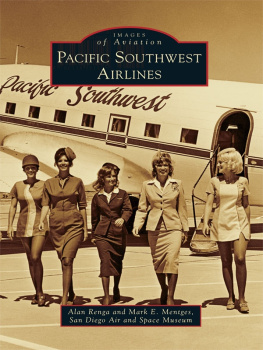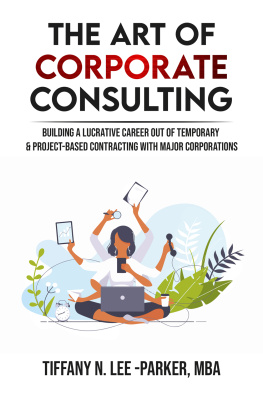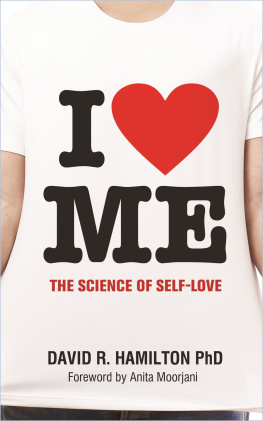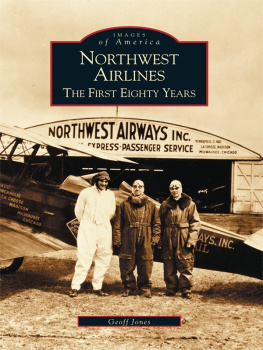MONOPOLIZED
Also by David Dayen
Chain of Title: How Three Ordinary Americans Uncovered
Wall Streets Great Foreclosure Fraud
MONOPOLIZED
LIFE IN THE AGE OF CORPORATE POWER
DAVID DAYEN

No one may presume to exercise a monopoly of any kind and if anyone shall presume to practice a monopoly, let his property be forfeited and himself condemned to perpetual exile.
Emperor Zeno to Praetorian Prefect of Constantinople, A.D. 483
No one man should have all that power.
Kanye West, Power, A.D. 2010
CONTENTS
MONOPOLIZED
INTRODUCTION
On April 15, 2019, .
Ill back up if youre confused.
Theres this company called Salesforce that makes customer relationship management software. It tracks current sales and projects future sales. It sounds to me like a shared spreadsheet, but Im reliably informed that its a transformative product. Anyway, at one point, Salesforce spun off an independent philanthropic arm, unimaginatively called Salesforce.org, which offers the software to nonprofits and educational groups for little or no money. As people like cheap things, that business took off. So much so that Salesforce decided to buy it.
will either jack up the price to nonprofits or streamline areas of operational duplication, another deliberately convoluted way of saying it would make job cuts.
The larger point is this: Salesforce, which has two wealthy industrialists with their own empires and separate claims on Expedia, an online travel site that has spent the past couple of decades scooping up adversaries. Expedia was once part of Microsoft, then Dillers corporation owned it, and then it became its own company but Diller still had a hand in it. Now it was purchasing itself. To make things simpler.
Were living in an age where companies buying themselves offers the only respite from companies buying each other. It sounds absurd, but our era is absurd.
The capitalist economic system, whether you value it or not, relies on competition. At its best, competition keeps companies honest, narrows costs, expands the job base, sows innovation, distributes the fruits of productivity widely, and gives every member of society a chance to use their talents to earn a living. Competition protects economies, affords possibility, and allows democracy to flourish, as no one firm becomes big enough to control the corridors of power. Thats the theory, at least, and historical evidence bears it out. Americas best moments of shared prosperity line up favorably with eras of robust competition, when government-appointed guardians attacked efforts to corner markets.
Those attacks have been kept in abeyance for over forty years; government has abandoned its post as the guardian of competition. As a result, we toil in this age of monopoly, this age of plutocrats, this age of soaring inequality and broken democracy, this age of middle-class despair and sawed-off ladders to prosperity. The fact that fewer and fewer companies control most economic sectors today helps to explain virtually all the challenges America faces.
This book means to explain that connection. But we must also address the dissenters, the still-dominant faction of antitrust scholars, academics, and policymakers, who look at the world and see no concentration problem worth their attention. Ive been to their conferences, Ive heard them speak, in 2016.
My main advice to the naysayers is to go outside. Its not hard to identify the collections of monopolies encircling our every move through life.
(Just a note here: Im using the term monopolies to refer to companies with significant market shares in highly concentrated industries. I could refer to oligopolies or large companies, but monopolies will suffice, for ease of use.)
Some monopolies are obvious to everyone. There are four major airlines, four major commercial banks, four major companies that deliver phone, wireless, cable, and internet services. One company controls most web search; one company controls most social media; one company controls about half of all e-commerce. Handfuls of firms dominate virtually every aspect of food and agricultural production, media, military equipment, medical supply, and regional hospital management. Phrases like Big Pharma and Big Oil are ubiquitous in political discussion. In nearly all states, the take upward of 80 percent of the market.
For other monopolies, you need a decoder ring of sorts; I think of it like the sunglasses worn in John Carpenters 1988 schlock sci-fi classic They Live. Carpenter himself has called the film an between Rowdy Roddy Piper and Keith David, but thats not important right now.
Put on the sunglasses, crack the code, and you uncover monopolies, ridiculous monopolies, throughout American life. There appear to be lots of dating apps out there, appealing to some cross section of the eligible bachelor and bachelorette pool. Theyre almost through an Italian firm named Mainetti.
of all dollars spent at the box office, with control of Marvel, Lucasfilm, and 21st Century Fox properties, along with its existing empire. Harvey Weinstein finally was exposed as a sexual predator because his power (he cornered the market on Oscar-winning films in the late 1990s, when his company Miramax was part of Disney) started to wane, making it safer to go after him. The horrors that todays consolidated entertainment business has enabled are as yet unknown.
Walk into a supermarket and witness the glories of capitalism at work, aisles upon aisles of different products for different tastes. Theyre mostly the handiwork of a few giant companies, from Nestl to Unilever to PepsiCo. Heres a fun game: pick an aisle at random at your local supermarket and check the back of every product in succession. Ive done this at my neighborhood Ralphs ( from 2018 sums up the situation: Yogurt Is Cool, So Deal Talk Is Heating Up. Whatever people want, large companies respond by turning their cash cannon on the upstarts and buying them out.
Put on your sunglasses and you can finally see, with clear vision, the monopoly in sunglasses. Practically every lens and frame outlet in AmericaPearle Vision, Sunglass Hut, Target, LensCraftershas as its owner an Italian firm named Luxottica, which also makes frames for brands like Ray-Ban, Vogue, Prada, Chanel, Coach, and dozens more. In 2018, Essilor, a French lens maker that controls half the global market, , a Dutch company that owns For Eyes, among other retailers. Its a global glasses monopoly.
I could fill the rest of this book by just naming hidden monopolies, , after the merger of Manischewitz with a conglomerate that supplies a bunch of kosher foods.
The current media fascination with monopoly is incredibly focused on Big Tech, which is indeed a menace, invading our privacy, distorting our attention, serving as conduits for misinformation, and destroying startups..
America has habitually drifted from a country of shared abundance to a country teeming with predatory monopolists. Citizens under British rule in New England reacted to the Tea Act of 1773, which gave the East India Company unfettered control over the sale of the sought-after leaves to the colonies by tossing chests of the stuff into Boston Harbor. The Boston Tea Party, in other words, was . And we have seen other rumblings, reactions to consolidation and control over our lives, throughout American history. Monopoly in transport of goods sparked the farmer-led Granger movement; monopoly in industrial factory work sparked the labor movement; trusts throughout the economy sparked the Progressive Era and produced the governments tools to combat market power. The push and pull of monopoly and resistance exists on the periphery of our most critical debates and conversations.
Next page






